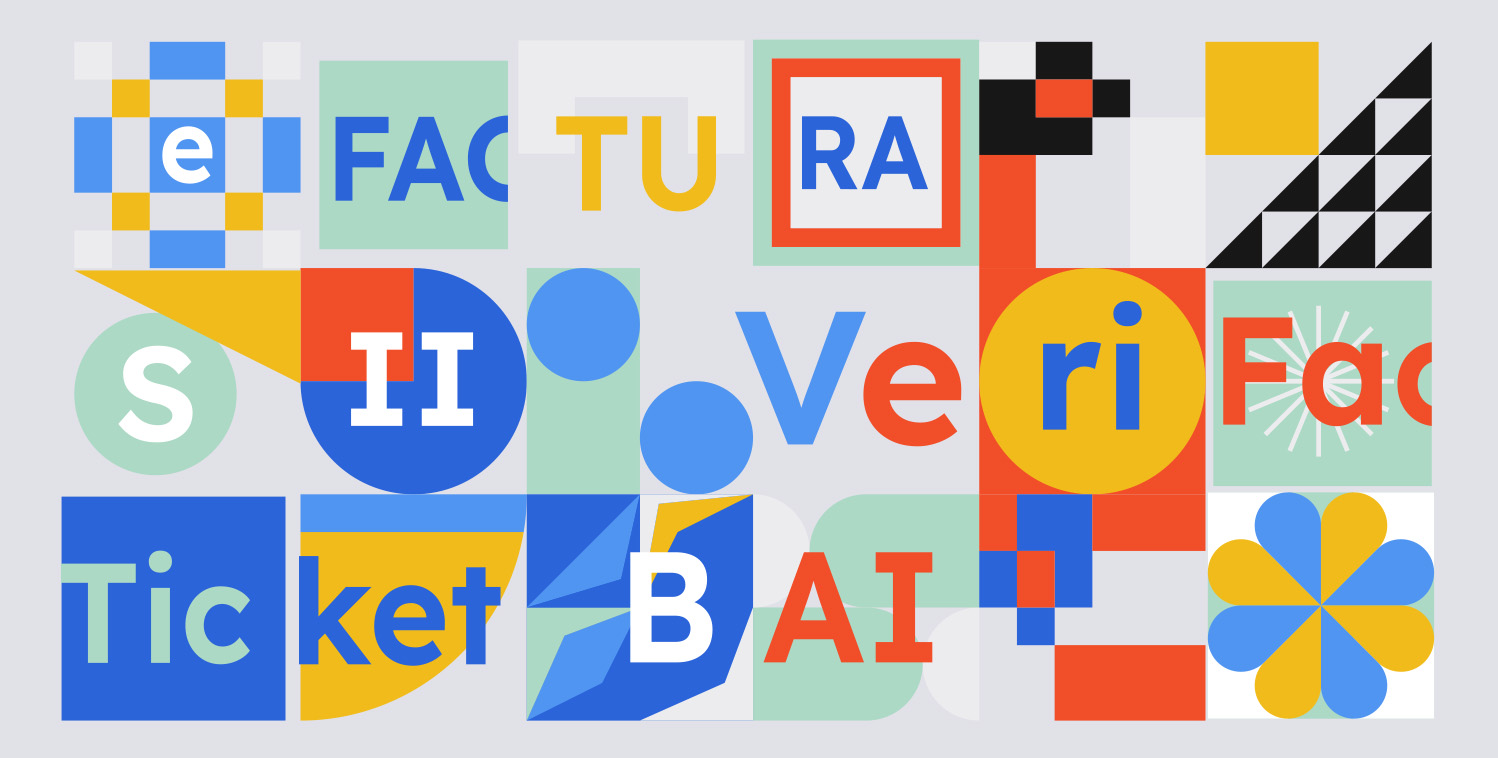What is the difference between the electronic invoice and VeriFactu? Will the Immediate Disclosure of Information (Suministro Inmediato de Información or SII) and the electronic invoice coexist? What will happen with Basque companies and TicketBAI? Continue reading to find the answer to these and many more questions.
What is what: electronic invoice, SII, VeriFactu and TicketBAI
The Crea y Crece Law established a mandate to create a Spanish electronic invoice system. The Ministry of Economic Affairs and Digital Transformation has drafted a royal decree to regulate the use of the electronic invoice for transactions between companies (B2B). This royal decree creates the Spanish electronic invoice system. The Spanish e-invoice model establishes that companies must exchange electronic invoices through the Electronic Invoice Exchange Platforms (Plataforma de Intercambio de Facturas Electrónicas or PIFEs). Therefore, the PIFEs will need to send a copy of each invoice to a public platform. In this webinar we explain this regulation in more detail.
The Immediate Disclosure of Information (Suministro Inmediato de Información or SII) is a system created by the Tax Administration, through which a filing, nearly in real time, is made of the value added tax (VAT) record books. SII required Taxpayers are those with an annual turnaround exceeding 6 million Euro. The obligation is to send the invoicing record details within four days. In this link you will find all the information about SII.
The anti-fraud Law was enacted in October 2021. One of the mandates of this law is the creation of its own regulation, which is in the process of being approved. This regulation covers the creation of VeriFactu. VeriFactu is a verifiable invoice issuance system. The main purpose of VeriFactu is to certify, for invoice issuing companies, that these documents meet a minimum set of requirements and are considered valid and certified by the administration. The VeriFactu system has not yet been approved by the Council of Ministers and therefore, is not mandatory and is not in force.
On the other hand, TicketBAI is a project that has been jointly developed by the Regional Tax Administration (Haciendas Forales) and the Basque Government. In accordance with the Basque government, the aim of TicketBAI “is to set legal and technical obligations in the management and billing software of taxpaying companies that allow controlling their activities and revenue (…). All taxpayers without exception must incorporate this measure”. The incorporation of TicketBAI is different in the three Regional Tax Administrations (Vizcaya, Guipúzcoa and Álava), in form as well as time. TicketBAI has been gradually coming into force from 2022 to 2024 in the different territories.
Similarities and differences
In accordance with the current regulations in force, the four systems will coexist. None of these systems will replace any another. What then are the differences between them?
The Spanish electronic invoice system and TicketBAI are two systems that regulate the electronic invoice in some way. They are similar, but TicketBAI is regional and the Spanish electronic invoice system is state wide. This means that, even though they comply with the TicketBAI system, Basque companies must also comply with the draft royal decree that regulates the use of the electronic invoice in Spain.
On the other hand, the VeriFactu certification complements the mandatory requirement to use the electronic invoice in transactions between companies (B2B). This way, invoice issuing companies, which are also PIFEs in the Spanish electronic invoice system, will need to be VeriFactu certified in order to operate. In summary, this is an additional layer of security.
Finally, the Spanish electronic billing system will not replace SII. The main reason is that both systems have different objectives as discussed above. Also because SII will be the channel through which companies must report their invoice statements as established in the draft royal decree that regulates the mandatory electronic invoice in Spain.
Frequently asked question
As experts in electronic billing, from Voxel we have conducted several training sessions and webinars on this regulation. Some frequently asked questions on the electronic invoice, SII, VeriFactu and TicketBAI are provided below.
What is the relationship between the royal decree on the electronic invoice, the VeriFactu system and TicketBAI?
Verifactu is a system that has not been approved yet. However, when it finally gets approved, it may coexist with the draft royal decree on electronic invoicing as it has different functions. On the other hand, the Basque Government decided to implement their electronic billing system called TicketBAI, which must comply with the obligations established in the royal decree once it is published in the Official State Bulletin (Boletín Oficial del Estado).
Must I continue reporting to the Immediate Disclosure of Information (Suministro Inmediato de Información or SII)?
Yes. The Crea y Crece Law does not replace the Immediate Disclosure of Information (Suministro Inmediato de Información or SII).
Will companies that are already reporting all invoices directly to the Immediate Disclosure of Information (Suministro Inmediato de Información or SII) have to also send all B2B invoices (between companies) through Voxel so the administration is informed through this second channel?
Issued invoices must be uploaded to the State Treasury Administration Department (Agencia Estatal de Administración Tributaria or AEAT) platform. The recipient of the invoice must report their acceptance and the payment date through SII. In both cases, Voxel will carry out the necessary actions.
If you have any questions or wish to comment on a particular case, please contact our team at [email protected].











